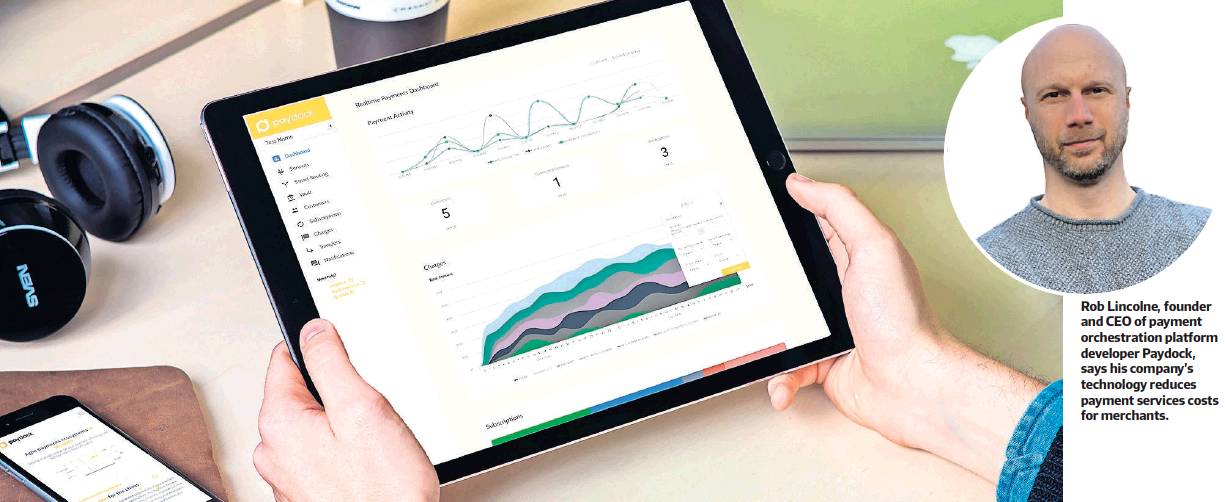Easily navigate ‘an ocean’ of options
A decade of payments-technology innovation, the advent of the digital economy and paymentsystem regulatory reform collectively paved the way for a shake-up of the retail sector and the emergence of the digital consumer. Then came the pandemic and these trends were instantly magnified and accelerated.
The global digital-payment market is expected to grow from $US79.3 billion in 2020 to $US154.1 billion by 2025 – a compound annual growth rate of 14.2 per cent – according to research firm Markets and Markets.
Payment gateways and payment processing are the most in-demand solutions among merchants.
Noting the proliferation of payment-service providers and payment options, a paper by risk and compliance services company Accuity observes that, “We have only scratched the surface of innovation in payments.”
“These days, consumers are faced with a dizzying array of payment options, whether they shop in person or online,” Accuity says in the paper, Accelerating Payments: Security Matters in a Crowded Payments Market.
“The growing array of payment options has coined a new phrase and concept – payment orchestration.
“At the root of the concept is merchants’ need to deliver the best possible customer experience in an increasingly crowded market, whilst keeping costs under control.”
Andrew Steele, investment analyst at US private equity firm Activant Capital, believes payment orchestration “will define the next decade of payments innovation”.
Payment orchestration is the technology-based process of equipping merchants to rapidly connect to the most effective processor for each transaction, providing the benefits of improved speed, reduced costs and better consumer experiences.
“Modern payment orchestration platforms are emerging that take all the essential payment functionalities a business needs and stack them together in a more efficient, streamlined way,” Steele writes on fintech news site FinLedger.
“They are unlocking increased revenue, providing a better checkout experience for the consumer with additional options, fortifying security and freeing up valuable time and resources for merchants.
“As payments technology continues to evolve … keep a close eye on orchestration as we expect momentum to increase.”
Fintechs have been the drivers of the paymentsystem innovation that is providing consumers – and therefore merchants – with a flurry of options, but fintechs are also turning their attention to payment orchestration to enable merchants to co-ordinate the different components that a payment entails across multiple payment services.
“[O]rganisations that invest in the ability to have payments orchestration receive a huge return,” explains payments news site PYMNTS.com.
“They gain speed and the ability to reduce costs by routing between different providers. At the same time, customisation in payments and having the ability to make business decisions from a risk as well as a relationship perspective is important to many companies.”
Rob Lincolne, founder and CEO of payment orchestration platform developer Paydock, says the proliferation of payment services is resulting in “material fragmentation of the market, with new vendors entering the market every month”.
“The payments industry is out of control,” he says.
“There is significant commoditisation of the payments market occurring and many vendors are essentially offering the same thing.”
The Paydock platform is a rapid cloud-based payments tool that enables merchants to “plug in” their payment-service providers, and connect more, through a single dashboard.
“Compliance creep is escalating costs for merchants and compliance is increasingly demanding and complex across fragmented systems, particularly with the rise in online fraud,” Lincolne warns.
“Our research indicates that administration costs associated with the increasing complexity of digital payments is costing merchants as much as 10 per cent of digital revenues.”
Lincolne says merchants no longer wish to commit to a single-vendor strategy but “the ocean of choice” is adding to payments complexity and difficulties with differentiating between payment services.
“It’s getting all too hard and the frustration is tangible and merchants are losing money. Orchestration is the only practical solution,” he says.
“Paydock reduces merchants’ payment costs while accelerating their ability to deploy payments technology without friction or cost. Our payments orchestration platform removes risks and costs including functional gaps, reconciliation challenges, security concerns, payment data and method management.
“We assist with compliance, reconciliation, integration, redundancy and recurring payments.”
Lincolne says merchants can future-proof their payment-system strategy while taking advantage of new developments in payments technology.
“Payment orchestration gives merchants the confidence that they can choose and quickly integrate any payment service into their business on a uniform platform,” he says.
“Being able to consolidate payment services into one place takes the pressure off merchants.”
Lincolne says payment orchestration has moved from “a niche idea to a fundamental strategy”.
“The more vendors there are, the stronger our argument becomes,” he says.
“My vision is to see payment orchestration become the default setting for consumer payment services.”
